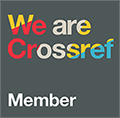İlkokul Öğrencilerinin Sözel Problem Çözme Performansı Üzerinde Anlamsal Tutarlılık Etkisi
DOI:
https://doi.org/10.33308/26674874.2020342198Anahtar Kelimeler:
Sözel Problem- Problem Çözme- Anlamsal Tutarlılık- İlkokul ÖğrencileriÖzet
Sözel problemlerde karmaşıklık yaratan durumlardan birisi problemlerdeki anahtar sözcüklerin problemin çözümü için gerekli işlemle tutarlı olup olmadığıdır. Bu araştırmada, ilkokul öğrencilerinin işlemle tutarlı ve tutarsız anahtar sözcükler içeren sözel problemlerdeki performanslarının Türkçe ve matematik dersi akademik başarılarına göre nasıl değiştiğinin ve problem çözme performansı üzerinde anahtar sözcüklerin rolünün incelenmesi amaçlanmıştır. Araştırmanın nicel aşamasına, uygun örnekleme yöntemiyle belirlenen ve ilkokul 3. ve 4. sınıfta öğrenim görmekte olan 100 öğrenci katılmıştır. Araştırmanın nitel aşamasında yarı yapılandırılmış görüşmeler yapılmış olup katılımcılar maksimum çeşitlilik örneklemesi yoluyla belirlenmiştir. Araştırma sonucunda, işlemle tutarlı anahtar sözcükler içeren problemlerde öğrenciler daha yüksek performans gösterirken, işlemle tutarsız anahtar sözcükler içeren sözel problemlerde daha düşük performans göstermiştir. Öğrencilere işlem seçimlerinin gerekçeleri sorulduğunda, büyük bir çoğunluğu işlemle tutarlı ve tutarsız anahtar sözcüklere vurgu yapmıştır. İşlemle tutarsız anahtar sözcüklerin yer aldığı problemler, genellikle düşük ve orta başarı grubundaki öğrencilerin hatalı işlem tercihinde bulunmasına neden olmuştur. Özellikle ilkokul döneminde öğrencilerin okuduğunu anlama becerilerinin geliştirilmesi ve sözel problemlerin anlamsal-dilsel özellikleri ile nasıl başa çıkılacağının öğretilmesi öğrencilerin ilerleyen yaşlardaki performanslarının olumlu yönde gelişmesini destekleyebilir.
İndirmeler
Referanslar
Albayrak, M. ve Erkal, M. (2003). Başarıya giden yolda ifade ve beceri derslerinin (Türkçe–Matematik) birlikteliği. Millî Eğitim Dergisi, 158(1), 150-155.
Andersson, U. (2007). The contribution of working memory to children's mathematical word problem solving. Applied Cognitive Psychology, 21(9), 1201–1216. doi:10.1002/acp.1317. DOI: https://doi.org/10.1002/acp.1317
Baki, A. (2006). Kuramdan uygulamaya matematik eğitimi. Trabzon: Derya Kitabevi.
Boonen, A. J. H., de Koning, B. B., Jolles, J. ve van der Schoot, M. (2016). Word problem solving in contemporary math education: A plea for reading comprehension skills training. Frontiers in Psychology, 7(191), 1-10. DOI: https://doi.org/10.3389/fpsyg.2016.00191
Boonen, A. J. H., van der Schoot, M., Van Wesel, F., De Vries, M. H. ve Jolles, J. (2013). What underlies successful word problem solving? A path analysis in sixth grade students. Contemporary Educational Psychology, 38(3), 271–279. DOI: https://doi.org/10.1016/j.cedpsych.2013.05.001
Cohen, J. (1988). Statistical power analysis for the behavioral sciences (2. bs.). Hillsdale, NJ: Lawrance Erlbaum Associates.
Çelik, D. ve Taşkın, D. (2015). 5., 6. ve 7. Sınıf öğrencilerinin aritmetik sözel problemleri çözme sürecinin incelenmesi. İlköğretim Online, 14(4), 1439-1449. DOI: https://doi.org/10.17051/io.2015.27608
Daroczy, G., Wolska, M., Meurers, W. D. ve Nuerk, H. C. (2015) Word problems: a review of linguistic and numerical factors contributing to their difficulty. Frontiers in Psychology, 6(348), 22-34. DOI: https://doi.org/10.3389/fpsyg.2015.00348
De Corte, E., Verschaffel, L. ve Pauwels, A. (1990). Influence of the semantic structure of word problems on second graders' eye movements. Journal of Educational Psychology, 82(2), 359–365. DOI: https://doi.org/10.1037/0022-0663.82.2.359
de Koning, B. B. ve van der Schoot, M. (2020). Can “you” make a difference? Investigating whether perspective-taking improves performance on inconsistent mathematical word problems. Applied Cognitive Psychology, 33(5), 911-917. DOI: https://doi.org/10.1002/acp.3555
Fuchs, L. S., Fuchs, D., Compton, D. L., Hamlett, C. L. ve Wang, A. Y. (2015). Is word-problem solving a form of text comprehension? Scientific Studies of Reading, 19(3), 204–223. DOI: https://doi.org/10.1080/10888438.2015.1005745
Fuchs, L. S., Fuchs, D., Compton, D. L., Powell, S. R., Seethaler, P. M., Capizzi A. M. ve Fletcher, J. M. (2006). The cognitive correlates of third-grade skill in arithmetic, algorithmic computation, and arithmetic word problems. Journal of Educational Psychology, 98(1), 29–43. doi: 10.1037/0022-0663.98.1.29. DOI: https://doi.org/10.1037/0022-0663.98.1.29
Hegarty, M., Mayer, R. E. ve Green, C. E. (1992). Comprehension of arithmetic word problems: evidence from students’ eye fixations. Journal of Educational Psychology, 84(1), 76–84. DOI: https://doi.org/10.1037/0022-0663.84.1.76
Hegarty, M., Mayer, R. E. ve Monk, C. A. (1995). Comprehension of arithmetic word problems: a comparison of successful and unsuccessful problem solvers. Journal of Educational Psychology, 87(1), 18–32. DOI: https://doi.org/10.1037/0022-0663.87.1.18
İskenderoğlu, T., Akbaba-Altun, S. ve Olkun, S. (2004). İlköğretim 3., 4. ve 5. sınıf öğrencilerinin standart sözel problemlerde işlem seçimleri. Hacettepe Üniversitesi Eğitim Fakültesi Dergisi, 27(27), 126-134. DOI: https://doi.org/10.1501/0003620
Karasar, N. (2017). Bilimsel araştırma yöntemi (32. bs.). Ankara: Nobel Yayın Dağıtım.
Kelley, T. L. (1939). The selection of upper and lower groups for the validation of test items. Journal of Educational Psychology, 30(1), 17–24. DOI: https://doi.org/10.1037/h0057123
Kintsch, W. ve Greeno, J. G. (1985). Understanding and solving word arithmetic problems. Psychological Review, 92(1), 109-129. DOI: https://doi.org/10.1037/0033-295X.92.1.109
Kroll, D. L., ve Miller, T. (1993). Insights from research on mathematical problem solving in the middle grades. D. T. Owens (Ed.), Research ideas for the classroom: Middle grades mathematics (s. 58-77) içinde. Reston: NCTM.
Milli Eğitim Bakanlığı. (2018). Matematik dersi öğretim programı (İlkokul ve ortaokul 1, 2, 3, 4, 5, 6, 7 ve 8. sınıflar). Ankara: Milli Eğitim.
Milli Eğitim Bakanlığı. (2019). Türkçe dersi öğretim programı (İlkokul ve ortaokul 1, 2, 3, 4, 5, 6, 7 ve 8. sınıflar). Ankara: Milli Eğitim.
Olkun, S. ve Toluk-Uçar, Z. (2007). İlköğretimde etkinlik temelli matematik öğretimi (3. bs.). Ankara: Maya Akademi.
Pape, S. J. (2003). Compare word problems: Consistency hypothesis revisited. Contemporary Educational Psychology, 28(3), 396–421. DOI: https://doi.org/10.1016/S0361-476X(02)00046-2
Soylu, Y. (2007). Öğrencilerin sözel problemleri çözerken sergiledikleri yaklaşımlar ve coğrafi bölgelere göre başarı oranlarının incelenmesi. Ondokuz Mayıs Üniversitesi, 24, 13-24.
Spencer, M., Fuchs, L. S. ve Fuchs, D. (2020). Language-related longitudinal predictors of arithmetic Word problem solving: A structural equation modeling approach. Contemporary Educational Psychology, 60(1), 1-16. DOI: https://doi.org/10.1016/j.cedpsych.2019.101825
Tertemiz, N. (1994). İlkokulda aritmetik problemleri çözmede etkili görülen bazı faktörler (Yayımlanmamış doktora tezi). Hacettepe Üniversitesi, Ankara.
Thevenot, C., Devidal, M., Barrouillet, P. ve Fayol, M. (2007). Why does placing the question before an arithmetic word problem improve performance? A situation model account. The Quarterly Journal of Experimental Psychology, 60(1), 43–56. doi: 10.1080/17470210600587927. DOI: https://doi.org/10.1080/17470210600587927
Van de Walle, J. A. (1994). Elementary school mathematics teaching developmentally. New York, NY: Longman.
van der Schoot, M., Bakker Arkema, A. H., Horsley, T. M. ve van Lieshout, E. D. C. M. (2009). The consistency effect depends on markedness in less successful but not successful problem solvers: An eye movement study in primary school children. Contemporary Educational Psychology, 34(1), 58–66. DOI: https://doi.org/10.1016/j.cedpsych.2008.07.002
Verschaffel, L., De Corte, E. ve Pauwels, A. (1992). Solving compare problems: An eye movement test of Lewis and Mayer's consistency hypothesis. Journal of Educational Psychology, 84(1), 85-94. DOI: https://doi.org/10.1037/0022-0663.84.1.85
Verschaffel, L., Greer, B. ve De Corte, E. (2000). Making sense of word problems. Lisse, The Netherlands: Swets & Zeitlinger.
İndir
Yayınlanmış
Nasıl Atıf Yapılır
Sayı
Bölüm
Lisans
Telif Hakkı (c) 2020 Yaşadıkça Eğitim

Bu çalışma Creative Commons Attribution-NonCommercial-NoDerivatives 4.0 International License ile lisanslanmıştır.
Sisteme yüklemiş olunan makalenin kapsamı, sunduğu bulgular ve sonucu ve yorumları konusunda Yaşadıkça Eğitim [YE] dergisi Sahibi, Editör, Editör Yardımcısı, Hakemler ve Editör Kurulu'nun hiçbir sorumluluk taşımadığını kabul ederim.
Makalenin özgün olduğunu, herhangi bir başka dergiye yayımlanmak üzere gönderilmediği, daha önce yayımlanmadığını Yaşadıkça Eğitim [YE] dergisi Editörlüğü'ne beyan ederim.
Başlığı belirtilen makalenin, 5846 sayılı Fikir ve Sanat Eserleri Yasasının 22. maddesi gereğince çoğaltma, 23. maddesi gereğince yayma ve 25. maddesi gereğince her türlü taşıyıcı materyal üzerinde veya elektronik ortamda kamuya iletim haklarını Yaşadıkça Eğitim [YE] dergisine karşılıksız, koşulsuz ve süresiz olarak devredildiği, makale ile ilgili devredilen hakların dilediği zaman, mekan ve koşullarda kullanmaya Yaşadıkça Eğitim [YE] dergisinin yayıncısı olarak İstanbul Kültür Üniversitesi'nin yetkili kılınacağını onaylarım.





